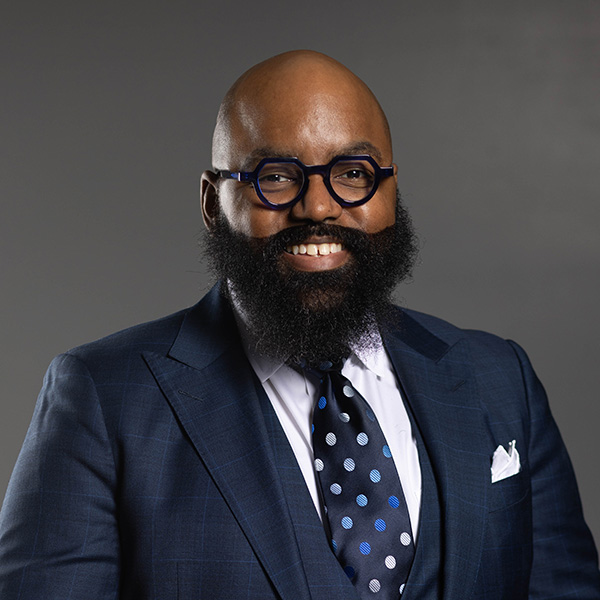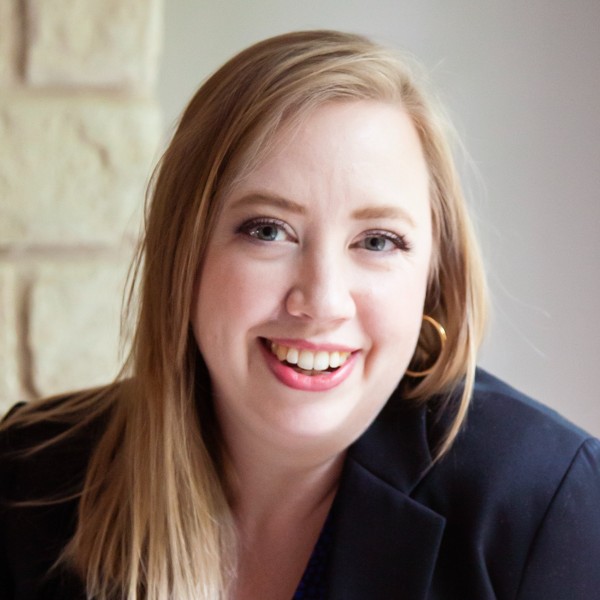Religion is not merely a private matter, with no role to play in our public life, said John Witte Jr.
“That’s not what the Constitution demands, it’s not what the culture needs, and it’s ultimately not where religion should settle,” said Witte, director of the Center for the Study of Law and Religion at Emory University.
Instead, religion should be an active participant in our politics and lawmaking.
“We need both public and private expressions of religion in all peaceable forms,” he said. “Religious views should be welcomed into public life, because they provide leaven for the polity to improve, and valuable examples and practices of how to organize our lives and laws in a better way.”
 Witte is the Jonas Robitscher Professor of Law, Alonzo L. McDonald Distinguished Professor, and director of the Center for the Study of Law and Religion at Emory University. A specialist in legal history, marriage law and religious liberty, he has published more than 200 articles and journal symposia, and 26 books.
Witte is the Jonas Robitscher Professor of Law, Alonzo L. McDonald Distinguished Professor, and director of the Center for the Study of Law and Religion at Emory University. A specialist in legal history, marriage law and religious liberty, he has published more than 200 articles and journal symposia, and 26 books.
He spoke with Faith & Leadership recently about law, religion and faith in the public square. The following is an edited transcript.
Q: Why a center on law and religion?
Initially, the center was designed to address questions that were falling between the curricular cracks -- church-state relations, canon law, issues of how a religious legal system fits in a modern, secular, constitutional state.
But increasingly, it also became an opportunity to think about hard questions that have spiritual and temporal dimensions -- issues such as human rights, family, charity and education.
Gradually, the center grew into a focused inquiry into faith, freedom and family viewed across the three Abrahamic religions and designed to retrieve the wisdom of the tradition and reconstruct it for our day. We try to develop a richer, interdisciplinary conversation about some of the fundamentals that divide religious and political communities and societies around the world.
Q: What has been the role of faith generally and Christianity in particular in shaping our understanding of law and the issues you mention, such as human rights and family?
Certainly in the Western legal tradition, Christianity was one of the backbones of many legal, political and social institutions that we take for granted today. At least from the 5th to the 18th century, Christianity provided many of the ideas and institutions of marriage and family, human rights and constitutionalism and more on which the Enlightenment and modern liberalism continued to build.
Much of that historical contribution is lost on contemporary church people. Even theologians and church historians don’t look at the legal and political implications of what the church and its theologians have rendered.
Many people in law and politics today, if they know about that theological heritage, think it’s simply scaffolding that went into the construction of the modern liberal state, and that now, the scaffolding can be taken down and the state and its law can exist without the support of the church and of its religious institutions.
Our starting assumption is the opposite: that religion is often a permanent part of the infrastructure of modern law, politics and society.
One thing we’re trying to do is to expose those religious foundations and dimensions, retrieve some of the richness of the tradition, demonstrate that there are enduring religious arguments about law and politics that the tradition introduced that can still be used and maintained in a postmodern, post-establishment, globalized, pluralistic society.
Part of that effort is to encourage the church, as it wrestles with new legal and political questions, to recognize that many things are not new under the sun. Our predecessors in the faith dealt with these same issues, and it’s important to mine the wisdom of the tradition before we make or accept precipitous changes.
It is too easy to say, with the Western liberal academy, that religion can simply die a happy death as rationalism and scientism have taken over. It’s too easy to say that religion is simply the irrational sputterings of the uneducated.
The reality is that we face a great awakening of religion around the world, and we don’t know how to deal with it. We are thus trying to find enduring models of interdisciplinary conversation in law and religion.
Q: Much of what you write about -- marriage, separation of church and state, faith in the public square -- is literally from today’s headlines. Why these issues now?
First, these are enduring questions for the West and for many civilizations around the world. Issues of church and state, of political and religious authority, have always been among the hardest contested questions. They resist easy solutions, and they always come back.
Second, we in the modern scientific era like to have clean analytical categories -- that some things are spiritual, some are economic, some political or legal. But we’ve begun to realize that those analytical categories, though helpful for teaching, don’t get to the reality of life and learning.
Many big things in life -- faith, family, human rights, education, charity, warfare -- ultimately involve spiritual and temporal questions and need the insights of a variety of disciplines and specialties.
Third, in the last 15 years, dramatically since 9/11, we have a new, serious and sophisticated conversation partner in Islam. Here is a culture just as sophisticated as Christianity that is making strong new claims upon our social, political and legal life. That too is precipitating new headlines and new contests.
Q: You’ve written that the rise of the Christian right isn’t a challenge to the integrity of American politics but to the apathy of American religion, and that it should be met by the rise of the Christian left. Basically, you contend that people of all faiths should take part in the marketplace of ideas. Why?
Part of that is my answer to the 1970s understanding of separation of church and state that said, “Religion is private; religion is dying; religion has nothing useful to say and is an illegitimate conversation partner in modern law, politics and society.”
That’s not what the Constitution demands, it’s not what the culture needs, and it’s ultimately not where religion should settle.
We need both public and private expressions of religion in all peaceable forms. Religious views should be welcomed into public life, because they provide leaven for the polity to improve, and valuable examples and practices of how to organize our lives and laws in a better way. Religions should be part of deep political conversation, and they should be taken into account as we craft our state laws and policies.
While it does not say that you must separate church and state, religion and law, the Constitution says we cannot establish religion by law. As a result, religious communities have an obligation to work with two levels of discourse -- an internal religious discourse but also an external, or apologetic, voice that translates some of those enduring teachings of their tradition into terms that people with other faith convictions or with no faith convictions can understand and perhaps be persuaded by.
That makes the political process, the social and legal process, much more complicated, often much more contested, but also much more realistic.
Q: So how do we navigate those kinds of tensions, as in the controversy over mandating birth control coverage in health insurance?
Some religious leaders say it violates their religious rights; others say those leaders are trying to impose their religious beliefs on everyone else. Inevitably, hard questions like this will come up when the state mandates a particular position on a fundamental matter like life or conception or contraception or the provision of welfare. The state is making, in effect, a religious or a moral statement.
The state is prescribing or proscribing a way of life that is animated by deep beliefs and metaphors that are akin to, if not directly applying, certain faith convictions.
The notion that the state is neutral and that religious communities are not is a hermeneutical starting point that cannot be maintained any longer.
The issue is, when is the state within its capacity and competence to pass something of fundamental moral value, and when is the matter properly left to nongovernmental associations or private individuals using their own conscience and their own best lights?
It’s in negotiating those boundary lines that we come up with these contests about same-sex marriage, about contraception, about the church’s role in issues like education or charity or social welfare.
In every one of those instances, we’re trying to define that line, but it is far harder to draw it universally than to draw it case by case.
Q: You write a lot on marriage and family, and back in 2001 had an essay, “An Apt and Cheerful Conversation on Marriage.” The title alone makes me wonder, can we even have an apt and cheerful conversation on marriage?
Well, it’s certainly not so cheerful these days, but it is apt. Every few hundred years in the Western tradition, we have a major crisis point that opens up a whole set of hard questions about our marital and household relations. We’re in the middle of such a crisis now.
The prior one was the 16th-century Protestant Reformation and Counter-Reformation, where the state took over most of the church’s marital jurisdiction and replaced its canon law of marriage with new state laws.
Before that was the 12th- and 13th-century Papal Revolution, where the church took jurisdiction over marriage and family and sexuality norms from Germanic and feudal rulers and imposed firm new legal and spiritual order on marriage and family life.
Before that, it was the 4th and 5th century, when the Roman emperors took control over Romanized Christianity and Christianized Rome, including the laws on marriage and family questions.
Today, we’re in the middle of another crisis or contest of the moment. It’s frankly comforting that the West has had crises like this before and has come through them, with the marriage institution stronger as a result.
It’s also comforting that the deep questions that we face in the 21st century are being addressed with such fervor today rather than swept under the rug, and that we are challenging older orders rather than assuming a particular law and ethic complacently.
A country or a church that doesn’t have heresy or countercultural challenges dies from complacency, so this new crisis is at one level healthy.
Also, it’s important to note that what we’re dealing with today is not just same-sex marriage, which dominates the headlines. That is only one of a variety of issues about marriage -- its formation, maintenance and dissolution, spousal rights and roles and responsibilities, about child care and custody and control.
The marriage and family crisis of today is much bigger than the hot-button issues that intermittently occupy the church and state and society today.
We’re dealing with the nature of the institution of the household, and legal responsibility for it, and trying to sort out what marriage means, what family means, what the boundary lines are between that and other forms of association.
What are our responsibilities to this institution called marriage and family, especially to the parties within who are the most vulnerable: children, other dependents, those near the end of life, people with disabilities and, especially outside the West, women? How do we work through to reform that institution to preserve its essential core but make it better for all parties?
Q: What’s the key message that you would want church leaders to understand about the intersection of law and religion?
First, the church has always had the power of prophecy. The church and its clerical leadership are responsible for speaking truth to power -- enduring truths as communicated in Scripture and tradition. That prophetic role is particularly necessary during crisis moments.
Second, the church has a pedagogical role in teaching society by example, and sometimes by instruction, how to live the moral life and how to live fully in conformity with the wisdom of Scripture and the tradition.
And at least on issues of marriage and family and sexuality, on issues of charity, on education, religious freedom and human rights, the church’s record is checkered. It’s important that the church provide an alternative example of what the prophets and what Christ himself offered us and instructed us to do.
Third, the church and its leadership have a unique opportunity to play a critical role to fill in the gaps that are increasingly beginning to show in the social welfare net.
We have to recognize that in the 21st century, and into the 22nd, the social welfare state as we know it today will be no more. The capacity of the West -- even the affluent West -- to maintain the system of support that we have given to “the least of these” is going to diminish severely, if not evaporate.
The church is going to have to be one of many voluntary associations that step into the traditional role it has always played in serving, protecting, nurturing and providing for the least in society, and not relying upon the state to do that work.
Fourth, the church has in the Scriptures, and in the life of Christ, a perfect example of how to live by the letter and the spirit of the law.
One thing that the church can do is to teach society what it means to live fully and honorably by the first and the greatest commandment, which is to love God, and love your neighbor as yourself, and exemplify what that means in concrete legal, political and social terms.












